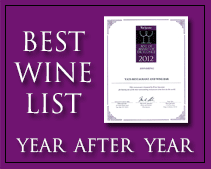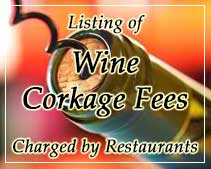South Africa’s Wine of Origin Scheme Explained
Philippines Wine Shop Clark Wine Center is pleased to share with you articles, news and information about wine, wine events, wine tasting and other topics related to wine and the appreciation of wine.
WINE OF ORIGIN SCHEME
Importance of origin
Because the role of origin is so important, an origin control system has for many years been in place in the traditional winelands of Europe, to protect both the producer and consumer. The two factors which play the most important role in determining the character and quality of a wine are nature (soil, climate and location) and the human hand (cultivar choice, viticultural practices and winemaking techniques). Of these two, nature is considered to be the more important factor with a greater influence. In certain areas vines grow better and within the South African wine-producing areas there are differences in soil, climate and location which cause wines to vary from region to region.
If a wine claims origin, it is the statutory regulations which ensure that the wine really is from that origin. When the term ‘Wine of Origin’ or the abbreviation ‘W.O.’ together with the name of a production area, such as Stellenbosch, Durbanville or Robertson appears on a label, it confirms that 100% of the grapes from which the wine was made come from that specific area.
Demarcation of areas of origin
A production unit can be any demarcated area, from a single vineyard to a geographical unit. The borders of all production units, small and large, are defined by law and officially published in the Government Gazette.
Estate wineries under the original legislation could make wine only from grapes grown on their own land. In 2004, a new dispensation did away with traditional ‘estate’ and focuses instead on ‘estate wine’ which must be produced in contiguous vineyards farmed as single units. These units must also be equipped with facilities to enable all processes up to bottling. All previously registered estates have now automatically been registered as Units for the Production of Estate Wine. For the first time, they can use their names to brand their total wine production (ie estate as well as non-estate) but only certified estate wine may be labelled and marketed as such.
Criteria for the demarcation of areas of origin
When a ward is defined, soil, climate and ecological factors play a very important role as they have a clear influence on the character of the wine. The proposed area name also has to be the real geographical place name and nature has to dictate that the specific area can actually produce wines with a distinctive character.
Districts have to meet the same criteria as wards but with a broader definition of the relevant area using macro geographical characteristics such as mountains and rivers. Naturally, a greater variety of soil types are allowed than in the wards.
Regions are mainly defined according to the encompassing area name which in the case of a river stretches from the source to the mouth thereof. When it comes to an estate, which can consist of one or more farms, it has to be accepted that the natural factors can differ but it is distinctive because in most cases there is only one producer and the farms are run as a unit.
Geographical unit
On 2 April 1993, the Wine of Origin Scheme was amended to make provision for the defining of a geographical unit. Currently, three geographical units have been demarcated, namely Western Cape, Northern Cape and KwaZulu-Natal.
SOURCE: http://www.wosa.co.za/sa/origin_scheme.php
Clark Wine Center was built in 2003 by Hong Kong-based Yats International Leisure Philippines to become the largest wine shop in Philippines supplying Asia’s wine lovers with fine vintage wines at attractive prices. Today, this wine shop in Clark Philippines offers over 2000 selections of fine wines from all major wine regions in the world. As a leading wine supplier in Philippines, Pampanga’s Clark Wine Center offers an incomparable breadth of vintages, wines from back vintages spanning over 50 years. Clark Wine Center is located in Pampanga Clark Freeport Zone adjacent to Angeles City, just 25 minutes from Subic and 45 minutes from Manila.
Wines from Burgundy, Bordeaux, Rhone, Loire, Spain, Portugal, Germany, Austria, Alsace, USA, Australia, New Zealand, Italy, South Africa, Chile and Argentina etc. are well represented in this Clark Wine Shop.
For more information, email Wine@Yats-International.com or visit http://www.ClarkWineCenter.com
You can skip to the end and leave a response. Pinging is currently not allowed.







